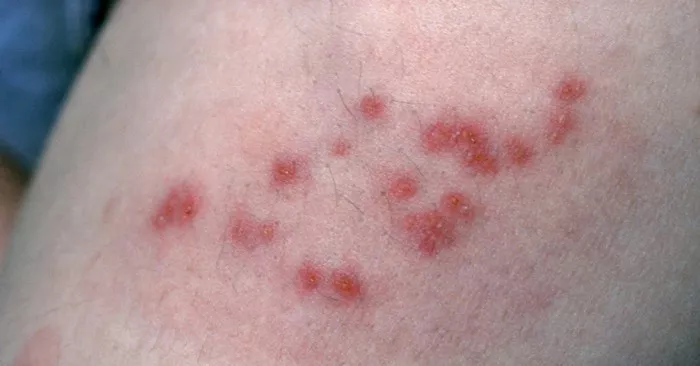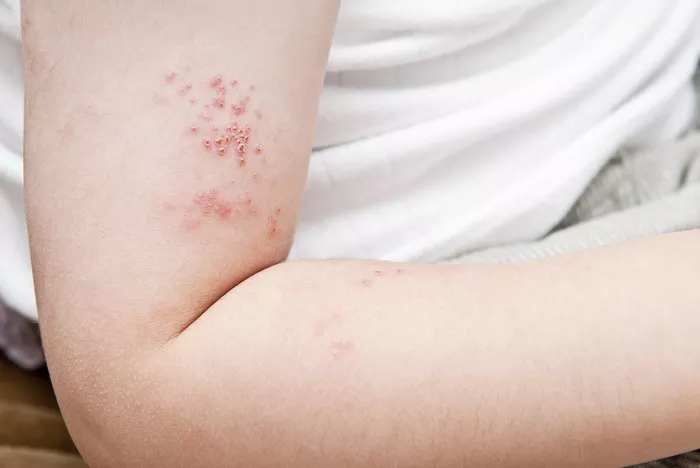Shingles is a viral infection that causes a painful rash, often accompanied by blisters. The condition is caused by the varicella-zoster virus, which is the same virus responsible for chickenpox. If you’ve had chickenpox in the past, the virus remains dormant in your body and can reactivate later as shingles. This raises concerns, especially for pregnant women, who may wonder about the risks associated with this condition. In this article, we will explore what shingles is, how it affects pregnant women, potential risks to the mother and the unborn baby, treatment options, and how to prevent shingles during pregnancy.
What Is Shingles?
Shingles, also known as herpes zoster, is a reactivation of the varicella-zoster virus that lies dormant in your nerves after you’ve had chickenpox. When the immune system becomes weaker, the virus can flare up, causing shingles. The first symptom of shingles is often pain, tingling, or burning on one side of the body. A rash develops soon after and eventually forms blisters. The rash typically appears in a strip or band on the body, often around the torso, but it can also affect the face or limbs.
Shingles and Pregnancy: Is It Harmful?
While shingles can be uncomfortable and painful, it is generally not considered harmful to pregnant women in most cases. However, there are certain concerns and risks that should be taken into account. The key concern with shingles during pregnancy is whether the infection could harm the unborn baby. Fortunately, shingles itself is not typically dangerous to the baby. Unlike chickenpox, which can cause complications during pregnancy, shingles usually does not pose the same level of risk. However, pregnant women should still take shingles seriously and seek medical care if they develop symptoms.
Risk of Complications
For most pregnant women, shingles does not lead to complications, but it’s important to be aware of the possible risks that can occur under certain circumstances.
Exposure to Chickenpox: If a pregnant woman has never had chickenpox or been vaccinated against it, exposure to someone with shingles could result in chickenpox. Chickenpox in pregnancy can cause more severe complications, including pneumonia, and may increase the risk of birth defects, especially if contracted in the first or second trimester.
Shingles on the Face: If shingles affects the eyes (ophthalmic shingles), it can lead to vision problems or infections in rare cases. In pregnancy, this could be more difficult to manage due to limited treatment options.
Increased Stress and Discomfort: The pain and discomfort from shingles can increase stress levels in pregnant women, which is not ideal during pregnancy. Persistent pain can lead to difficulty sleeping and a reduced quality of life.
SEE ALSO: Is Shingles Infection Contagious?
Transmission of Shingles
Shingles itself is not contagious. However, a person with shingles can spread the varicella-zoster virus to someone who has never had chickenpox. If this happens, the person will develop chickenpox, not shingles. This is a crucial point for pregnant women to understand because chickenpox during pregnancy can be harmful, especially in the early stages. If you are pregnant and have never had chickenpox or been vaccinated, it’s important to avoid direct contact with anyone who has shingles or chickenpox. The virus can spread through direct contact with the fluid from shingles blisters.
Effects of Chickenpox During Pregnancy
While shingles is generally not harmful to the baby, chickenpox during pregnancy can pose serious risks. The timing of the infection in relation to the pregnancy can affect the severity of complications.
First 20 Weeks: If a woman contracts chickenpox in the first 20 weeks of pregnancy, there is a small risk of congenital varicella syndrome (CVS). This condition can cause birth defects such as skin scarring, limb abnormalities, eye problems, and neurological disorders.
20 to 36 Weeks: In this period, the risk to the baby is lower. However, there is still a chance that the virus could affect the baby’s liver or brain.
Close to Delivery: If a woman develops chickenpox just before giving birth, there is a risk of neonatal varicella, where the newborn contracts the virus. This can be a serious condition requiring medical treatment. Pregnant women who are concerned about shingles or chickenpox should speak with their healthcare provider, especially if they’ve never had chickenpox or been vaccinated against it.
Shingles Treatment During Pregnancy
Shingles treatment in pregnancy aims to manage symptoms and reduce the duration of the illness. While some antiviral medications can be used safely during pregnancy, it’s important to consult a doctor before taking any medication.
Antiviral Medication: Medications like acyclovir, valacyclovir, and famciclovir are commonly prescribed to reduce the severity and duration of shingles. These antivirals are most effective when taken early, within 72 hours of the rash appearing. Acyclovir, in particular, is considered safe for pregnant women in certain circumstances, but your doctor will assess the risk-to-benefit ratio.
Pain Management: Over-the-counter pain relievers like acetaminophen (Tylenol) are generally considered safe for pregnant women to manage the pain associated with shingles. Pregnant women should avoid nonsteroidal anti-inflammatory drugs (NSAIDs), such as ibuprofen, without consulting their healthcare provider.
Cool Compresses: Applying cool compresses to the affected area can help soothe the skin and reduce discomfort from the shingles rash.
Calamine Lotion: This over-the-counter lotion can help relieve itching and irritation caused by the shingles rash.
Rest and Hydration: Rest is crucial for healing, especially during pregnancy. Drinking plenty of fluids can help maintain hydration, which is essential for overall health and recovery.
Preventing Shingles During Pregnancy
The best way to prevent shingles is to avoid contracting chickenpox in the first place. For women who have had chickenpox, there’s no guaranteed way to prevent shingles, but there are ways to reduce the risk.
Vaccination Before Pregnancy: The chickenpox (varicella) vaccine is recommended for women who have never had chickenpox. However, this vaccine cannot be given during pregnancy. If you are planning to become pregnant and haven’t had chickenpox, it’s a good idea to get vaccinated at least one month before trying to conceive.
Avoid Contact with Infected Individuals: Pregnant women should avoid contact with individuals who have shingles or chickenpox, especially if they’ve never had chickenpox or been vaccinated.
Boosting Immunity: A strong immune system can help reduce the risk of shingles. Pregnant women can maintain their immune health by eating a balanced diet, getting enough rest, and managing stress.
What to Do If You Get Shingles While Pregnant
If you suspect that you have shingles while pregnant, the first step is to contact your healthcare provider. Early diagnosis and treatment can help manage symptoms and reduce the risk of complications. Here’s what you should do if you develop shingles during pregnancy:
Seek Medical Advice: Your doctor can diagnose shingles based on your symptoms and may prescribe antiviral medication to reduce the severity of the infection.
Avoid Contact with Others: To prevent the spread of the varicella-zoster virus, especially to people who have never had chickenpox, avoid direct contact with others, especially children and pregnant women.
Take Care of Yourself: Focus on self-care to manage the pain and discomfort. Use soothing lotions, take cool baths, and rest as much as possible.
Monitor Your Baby’s Health: While shingles is generally not harmful to the baby, it’s important to attend all prenatal appointments and inform your doctor of any new symptoms or concerns.
Conclusion
Shingles during pregnancy is generally not harmful to either the mother or the unborn baby, especially if the mother has already had chickenpox. However, if you have never had chickenpox and are exposed to the virus, you may develop chickenpox, which can pose more serious risks during pregnancy. The best approach is to seek early medical advice if you suspect you have shingles, and follow your doctor’s treatment plan. With proper care and attention, most pregnant women who develop shingles can manage their symptoms and have a healthy pregnancy. Preventing shingles and chickenpox through vaccination before pregnancy is the most effective strategy, but if you’re already pregnant, taking steps to avoid exposure and maintain a healthy immune system will help reduce the risk of complications.
Related topics:

























